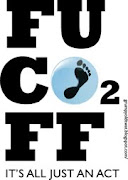Some good news about internet service in Australia. No, Senator Conroy still wants to censor it, but at least some sense has been seen in another area.
The giants of the film industry have lost their case against ISP iiNet in a landmark judgment handed down in the Federal Court today.Fucking good job too, and not just for iiNet subscribers. This would have set a very nasty precedent: that Internet Service Providers must also police the activities of their customers.
The decision had the potential to impact internet users and the internet industry profoundly as it sets a legal precedent surrounding how much ISPs are required to do to prevent customers from downloading movies and other content illegally.Frankly I can't for the life of me understand how it took eight weeks to reach that decision. The ISP is simply providing a service, and while it certainly can, probably does, and arguably should include a 'no illegal activity' clause in its terms and conditions that doesn't mean it should be doing the job of the police and courts. In turn that means you can't clobber them for failing to do what it isn't their to be doing.
But after an on-and-off eight-week trial that examined whether iiNet authorised customers to download pirated movies, Justice Dennis Cowdroy found that the ISP was not liable for the downloading habits of its customers.
The suit against iiNet was filed in November 2008 by a group of the biggest Hollywood studios including Village Roadshow, Universal Pictures, Warner Bros, Paramount Pictures, Sony Pictures Entertainment, 20th Century Fox and Disney, as well as the Seven Network.Okay, for the moment let's take that position and then extend the argument that the ISP was 'authorising' infringement, just to see where it goes. Doesn't it mean all suppliers of goods and services are 'authorising' illegal activity if the end users use them in way that breaches criminal or civil law? I know that various hoplophobic nutcases in America have tried suing companies for the illegal use by third parties of their legally produced and sold products. Similar?
They claimed iiNet was liable for ‘‘authorising’’ copyright infringement on its network because it did not warn or disconnect offending customers when repeatedly notified of the infringements by the movie studios.
The mayors of Chicago and New Orleans have filed lawsuits on behalf of their cities against the gun industry, and two similar lawsuits filed on behalf of private citizens are already moving through the courts, with a mixed verdict rendered in one of the private suits. The Chicago suit and the private suits contend that (1) guns are a public nuisance and (2) gun manufacturers knowingly flood cities with more guns than they could expect to sell to law-abiding citizens, thus aiding criminals to obtain firearms.So far none of these suits has got anywhere as far as I've heard, and in fact at least two have already failed. The reason? The courts seems to feel that aside from manufacturing defects or design faults any responsibility lies ultimately with the individual using or misusing a gun, not the manufacturers or suppliers. Apart from being trite the 'flooding cities' thing is bollocks - you'll notice that they're not suing the motor industry for knowingly producing more cars than they can expect to sell to law abiding and competent drivers.
Ah, you might say, but it's asking a bit much of both the gun manufacturers and the car industry - actually just about any industry - to keep track of their products. That doesn't apply to a company providing a service, especially something like an ISP that ought to be able to look at an individual customer's surfing habits, say their upload and download patterns, and draw conclusions that they're file sharing copyrighted material. Well, first off there are legal applications for P2P file sharing so the ISP would really need a little more than just upload and download patterns. However, the movie studios did have something there.
The entertainment companies compiled their evidence by hiring two investigators to subscribe to iiNet and then begin trading files using different BitTorrent networks.Not that that helped because, as iiNet noted, they don't have the resources to investigate every allegation and, above all else as far as I'm concerned, customers are still supposed to be innocent until proven guilty in court. This means that sending them an email reminding them of the Ts & Cs and telling them to pack it in is about all they can do, and not always that much.
They kept track of what movies and TV shows they were sharing, when they downloaded them, and the ID numbers of the computers they were sharing these files with.
Every week the entertainment companies sent that data to iiNet and asked that iiNet then disconnect the users who had been sharing the files illegally, but they said iiNet failed to act.
The companies claimed iiNet was refusing to enforce its own user agreement, in which users are asked to agree not to download files or anything illegally.
And even if they could track all users effectively, what then? What of the precedent that sets? It wouldn't affect just ISPs but every company who can even potentially put in place a system to monitor all their users. Wouldn't AusPost have to explain why they don't screen each and every piece of mail and insist people posting things provide (with documentary proof) a place of origin as well as the destination? People might be sending copied DVDs through the mail you know. That they'd have to check something in the region of five billion pieces of mail every year is neither here nor there if you accept the movie studios argument that ISPs are responsible for what their customers do. And what about companies whose business actually requires a tracking system and has therefore had one since day one? Someone like Citylink for example - since their toll roads opened nearly twenty years ago they've been tracking vehicles and charging tolls electronically. So if I jumped in the car now and floored it along the nearest bit of toll road is Citylink responsible? Or did they just provide the medium on which I committed an offence? Clearly it would be insane to hold a toll company responsible for individual drivers committing motoring offences, but that is pretty much what the movie companies expected of Australian ISPs. Thank fuck for some common sense, although the word 'appeal' got mentioned pretty quickly so the fight is probably not over yet.




















2 comments:
"This means that sending them an email reminding them of the Ts & Cs and telling them to pack it in is about all they can do, and not always that much."
Over here, they go a step further; they throttle your broadband.
I'm sure they were looking to force the ISPs to do something similar here.
Post a Comment